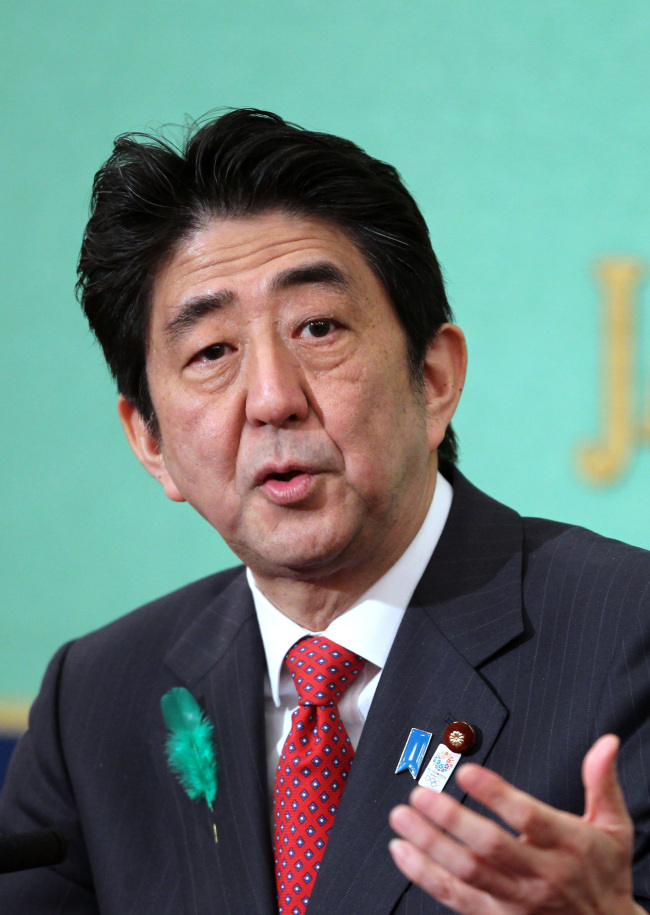When Japan’s Liberal Democratic Party swept an election last December, an alarm bell rang in Seoul about its chief Shinzo Abe’s perceived desire to veer the depression-riddled country toward the right and revive revisionism.
The concerns seem to be turning into reality as the prime minister’s far-right clan relays worship at a controversial war shrine and remarks denying the country’s imperialist past.
 |
Shinzo Abe (Yonhap News) |
At a parliamentary session Tuesday, Abe said the definition of invasion varies wildly by country, apparently legitimizing his country’s colonization of the Korean Peninsula in 1910-45 and incursion into China during World War II.
The remarks came one day after Seoul’s Foreign Minister Yun Byung-se called off his planned trip to Tokyo in protest against a visit to Yasukuni Shrine by some of Abe’s closest confidants such as Deputy Premier and Finance Minister Taro Aso.
The temple venerates Japanese war dead including World War II leaders responsible for massacres, sex slavery, forced labor and other atrocities.
The ongoing series of inflammatory moves incapacitate earlier forecasts ― or hopes ― that Abe would refrain from flaunting his nationalist credentials in light of the LDP’s partnership with the center-right New Komeito Party, which is crucial in clinching a supermajority in the upper house through the July election.
With his approval rating hovering well above 70 percent, officials and experts here now fret that Abe will speed up other controversial projects such as an amendment of Japan’s pacifist constitution and expansion of Self Defense Forces operations.
They will further dampen President Park Geun-hye’s drive to trounce historical and territorial brawls and forge a more constructive relationship with Tokyo.
But the tide may turn against Japan’s favor. For one thing, Park was the first Korean president to pick China as her second overseas destination, following her U.S. tour in May, which diplomatic sources said quite irked Abe amid the two countries’ reescalating tension in the East China Sea.
By Shin Hyon-hee (
heeshin@heraldcorp.com)








